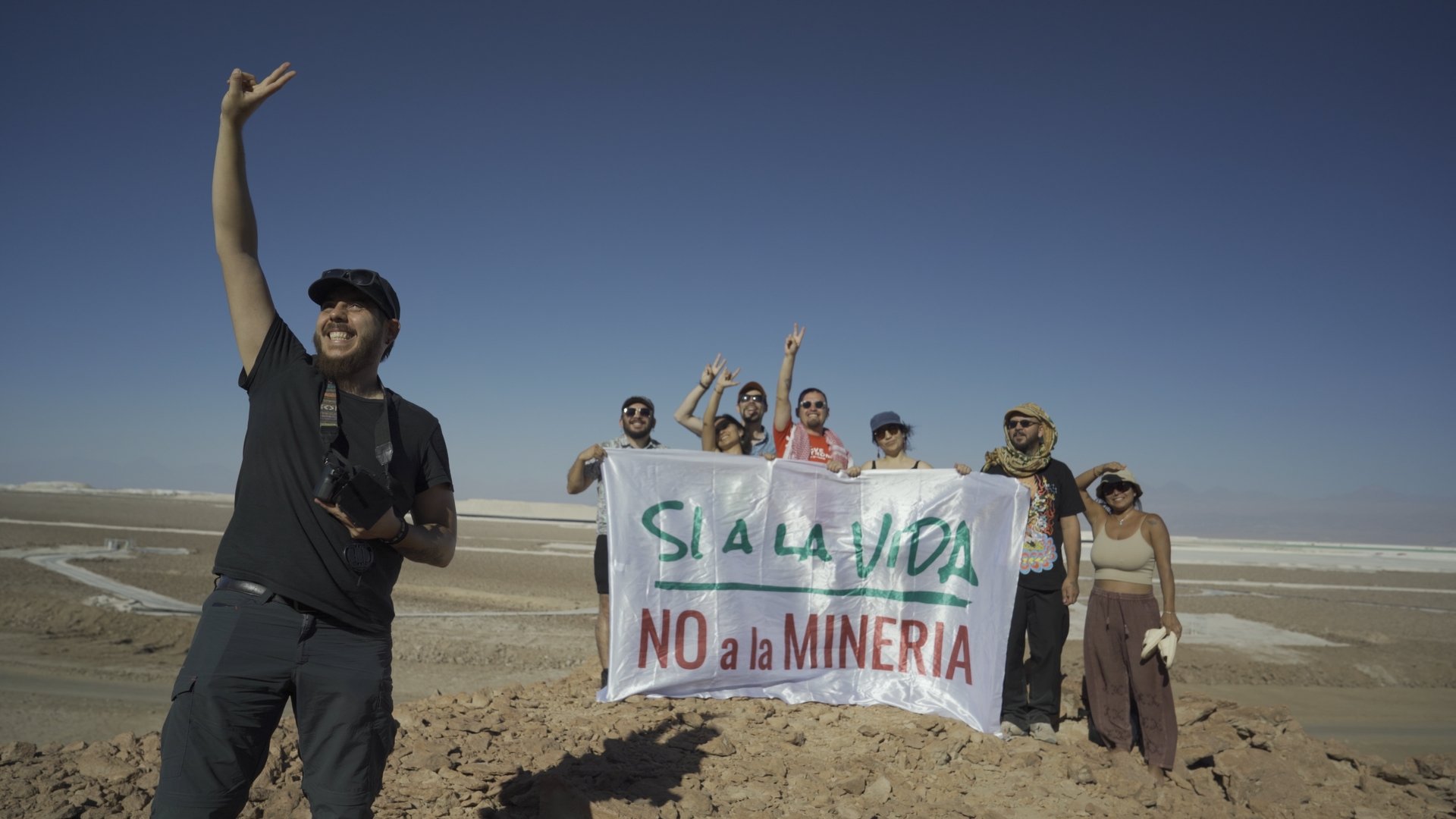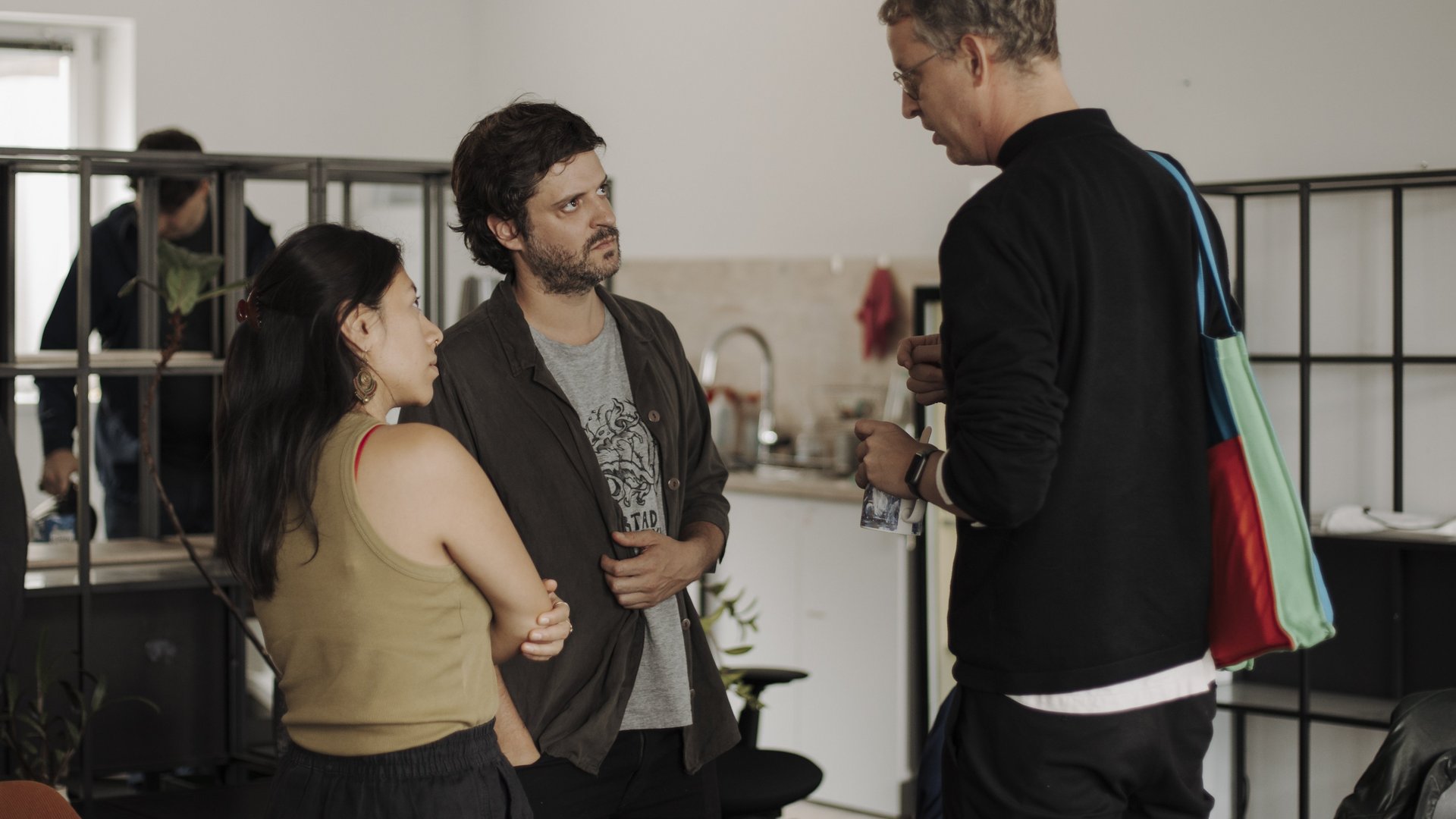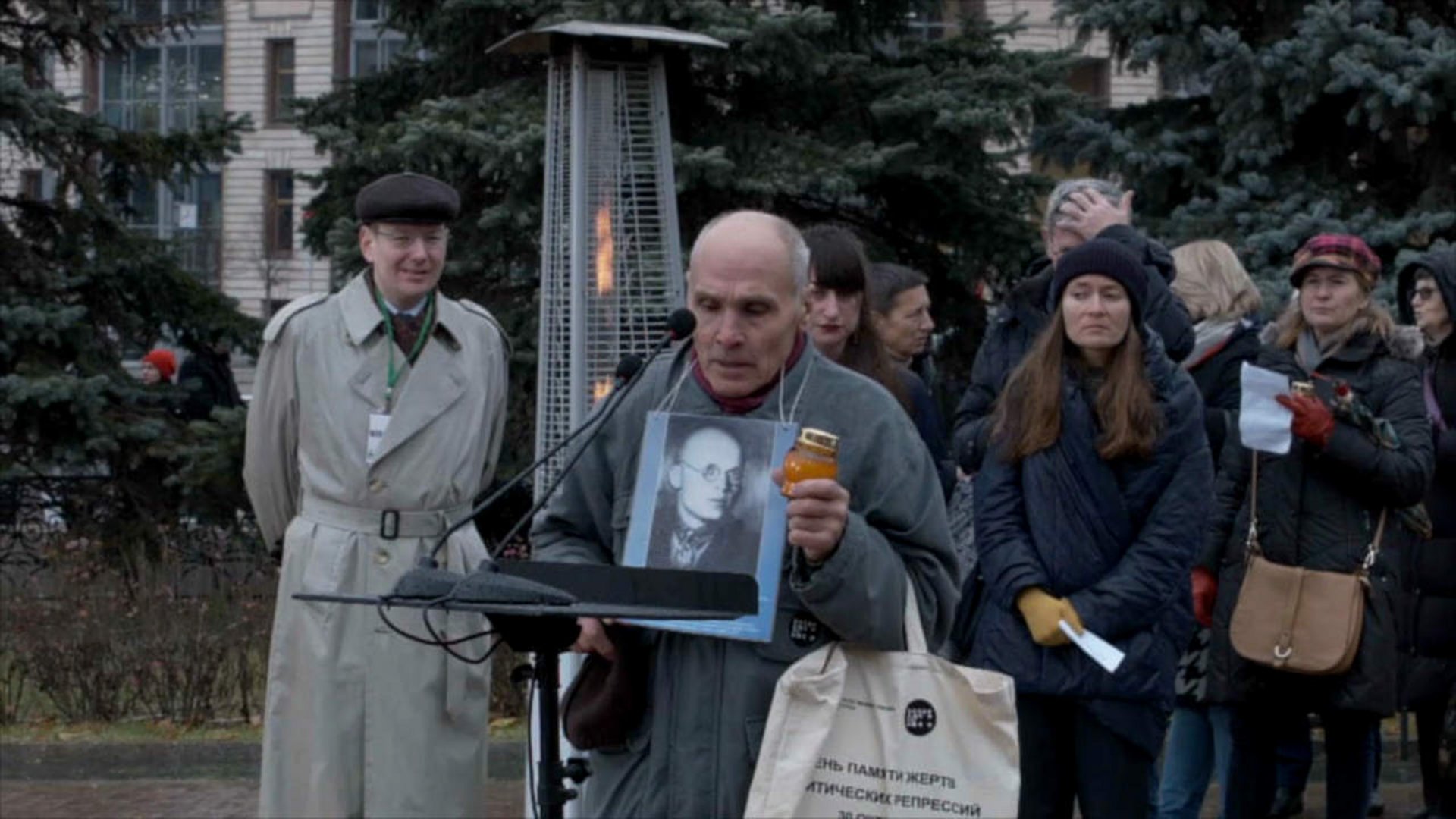
© Filmstill: Between our Backyards

© Filmstill: Between our Backyards
Juan Francisco Donoso criticizes lithium mining for electric cars, which destroys ecosystems and endangers local communities, particularly in Chile and Serbia. Despite the "green" transition, this is seen as a continuation of colonialist and capitalist exploitation. His documentary "In Our Backyards" highlights the ethical and ecological issues of resource extraction and calls for alternative, sustainable development models that prioritize the protection of nature and communities.
We know that history is not prewritten and that the future is shaped by what we do and think now. The stark evidence of climate change presented in all the latest IPCC reports makes it clear: our ecosystems are in peril, and our development models must change radically. And when the IPCC says radically, it means it. The communities and movements from the Atacama Desert in Chile and the Jadar Valley in Serbia, territories where lithium for car batteries has been found, are responding to this crisis by highlighting a critical issue—the need to reduce and cease mining activities in order to restore a balanced relationship with Nature. This stands in stark contrast to the relentless extraction of critical raw materials driven by the demand for electric cars in the Global North, especially Germany.
Extractive mining practices are decimating ecosystems and depleting and contaminating water sources, leading to severe health risks. This green transition is nothing but a smokescreen for the perpetuation of colonialism, where wealthy nations enjoy the benefits of ‘green technologies’. The rise of electric cars is clearly rooted in a capitalist framework that continues to exploit and marginalize. We must challenge the notion that progress requires exploitation. When someone asks me, If we don’t extract lithium, then what? When someone asks me, If we don’t extract lithium, then what? I always answer, If we see lithium extraction as violence against communities, I say no to mining at all
Our documentary, In Our Backyards (working title), is an atypical documentary: it was the members of the Atacama Desert’s social movements themselves who asked us to make it, even putting us in touch with their contacts in Serbia. And we have done what both they and we wanted: we have shed light on the colonial dynamics being implemented in the name of progress. The extraction of lithium is not just an environmental issue but a question of ethics and justice. We aim to expose greenwashing by showing the strategies employed by mining companies, especially Rio Tinto. This objective is also embedded within the context of the major protests that took place all over Serbia in August 2024 against the mining company, which wants to produce the lithium that Western Europe thirsts for.



We should advocate for alternative models that view the people defending their lands as the ones truly in favour of development: communities who see themselves as Nature defending itself against corporations and millionaires. To achieve genuine socio-environmental justice, we have to forge solidarity across zones of sacrifice and social movements, linking the struggles of those defending their lands with those developing sustainable alternatives. The path to a less harmful future lies in building networks of support that unify land defenders, Indigenous communities, and workers, challenging both the destructive forces of today and the inequitable systems of yesterday, such as fossil fuels and green mining.
Progress cannot be achieved through mining and exploitation that only benefit the elite while destroying the livelihoods and lands of the marginalized. True progress will only come about by respecting and empowering those communities, embracing true conservation, and pursuing a world that sees communities defending their land as Nature defending itself.